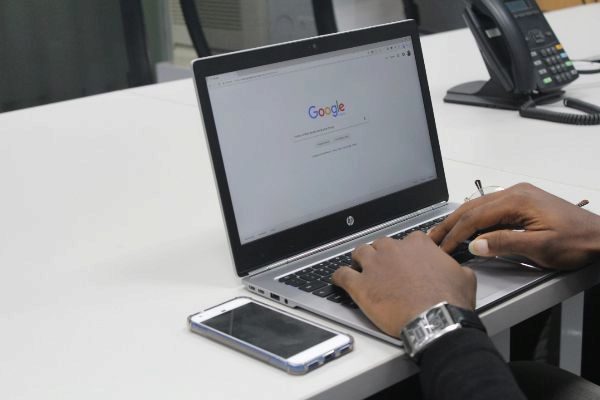- Tricks: All the ways in which Google spies on you (and how to avoid it)
- Genius: Google is copied by copying 'in the dough' with the morse code
- Privacy Google never forgets what you bought
On paper, Google's mission is to "organize information and make it universally accessible", a phrase repeated almost more than the famous (and already forgotten) "not to be evil" and that although it is very specific in its objective leaves well clarified the media.
Since 1998 Google has been considered, first and foremost, a search engine; a website to find any other website in the vast ocean of information that is the Internet. But it is time to change that conception because Google, over time, has ceased to be a tool to become a destination , the first and only stop when it comes to solving any doubt, often with information from third sources but without redirecting traffic to them.
According to a SparkToro analysis with data from Jumpshot , a data analysis firm owned by the security company Avast, June was the first month in which for the first time more than half of the searches conducted in the US in the search engine did not generated a subsequent click on no results.
This phenomenon, known as 'Zero-Click search' means that the user obtained the information he was looking for without having to visit any other page, not even another Google property, on the web.
Its growth over the years is mainly due to the fact that Google has begun to show useful information as direct results. When we ask the age of an actor or the conversion of a measure, for example, Google offers the result in a box, often taken from an external source but without taking the user to that destination.
Over time, searches that Google can solve in this way have grown in number and type. Now, for example, the search engine is capable of displaying cooking recipes (one of the most frequent searches on the Internet), weather information or flight status .
This information was offered before in a limited way in the results of searches made from conventional PC, but for a few months they have also been shown in mobile searches. As mobile searches are already much more numerous than traditional ones, the balance has quickly leaned towards this type of results without a subsequent click.
For the user it can be seen as a useful feature, no doubt, but it raises an awkward question about the nature of Google and its role in the network.
For decades digital empires have been erected and collapsed by the rules of the algorithm that decides which links are first shown in the list of results. Optimize the web to scale posts on this list (what is commonly known as SEO or Search Engine Optimization has therefore become a very demanding skill and, in passing, has completely transformed the content industry, not necessarily for good .
The rise of direct results, however, threatens to destabilize even this delicate balance. It makes no sense to dedicate many resources to stand out in a ranking in which nobody clicks.
The situation becomes especially complex when other factors are analyzed. The number of clicks known as 'organic' , that is, that the user voluntarily performs on actual search results, is decreasing not only by direct results.
Sponsored links, which are those that maintain Google’s business structure, are becoming more frequent and effective. In the second quarter of the year, 4.14% of all searches ended in a click to an ad. In 2018 the figure was only 3.9%. If we go to the mobile market, these clicks already account for 11% of the search results.
Of the rest, those that can be considered "organic" results, we must also subtract the results that point to properties within Google itself, such as Maps, content in AMP format or News , and that represent almost 6% of the clicks made after a search.
What is left for the web? Only 40% of searches end in a click for them, although they are often the source of direct data.
For years, Google has argued that these types of direct results are beneficial not only to users but also to the companies themselves because of the relevance they have in the search and their position, even ahead of sponsored links. In order to appear as a direct result, the websites have to voluntarily format the content in a certain way . But there are not many alternatives. Failure to do so penalizes when it appears in the top positions and therefore receives a smaller part of the already dwindling traffic.
The Jumpshot data seems to point to the only one benefiting from this 'status quo' being Google. Your advertising business does not suffer, as it does in the case of third-party websites that lose visits and clicks, and their complementary tools and services can afford to operate without advertising.
According to the criteria of The Trust Project
Know more- Internet
- technology
Politics Trump declares war on Google and accuses him of harming him before presidential elections
El Paso Massacre This is 8Chan, the banned web on which mass murderers hang their manifests
GadgetsGoogle continues to 'filter' the Pixel 4: it will be unlocked with facial recognition

